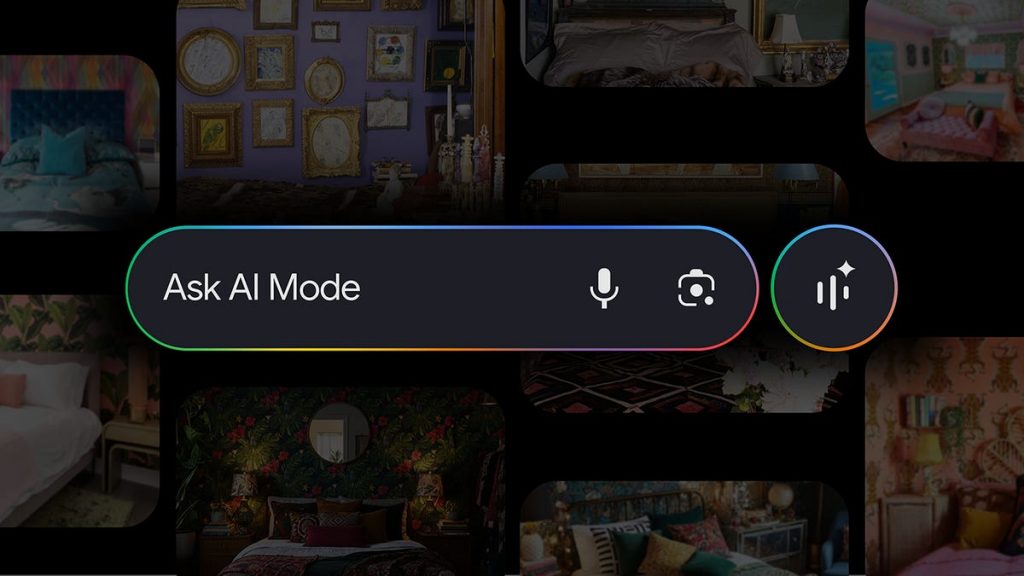Google’s AI Mode in Search will start letting users ask questions and get images as answers, Google said in a blog post on Tuesday.
AI Mode is the tab in Google Search that allows people to engage directly with a specially tuned version of Google’s AI, without needing to go to ChatGPT or Gemini.
Google says this visual AI search feature update allows people to find inspiration. Instead of jumping over to Google Images to find relevant photos, you can do all of that in AI Mode. Google offered the example of someone wanting design inspirations for their bedroom who asks to see maximalist bedroom photos. Images are linked, so users can click out and learn more about that image. Users can also iterate on their searches, asking for bright pink tones or bold fonts.
AI Mode’s visual search capabilities are rooted in Google Lens, which lets people use phone cameras to search for photos or similar items online. AI Mode will also allow people to upload their own photos and search that way.
Don’t miss any of our unbiased tech content and lab-based reviews. Add CNET as a preferred Google source.
Along with being able to see more visuals in AI Mode, Google says it’s improving shopping features. Rather than having to sort through filters, shoppers can just say, «barrel jeans that aren’t too baggy» and add «I want more ankle length.» AI Mode will then list retailer sites where those jeans can be had.
Image search in AI Mode brings Google another step closer to making its core online search product an AI product. As people become more accustomed to searching based on intent with AI synthesizing information in the background, the idea of typing in keywords and looking through ten blue links is becoming a relic. Google is leaning heavily on AI to stay competitive with ChatGPT maker OpenAI and to meet Wall Street’s pressure for it to remain a top player. Google recently hit the $3 trillion market cap milestone, the fourth company to do so.
Already, Google’s integrated AI Overviews add AI-generated responses to the top of search on some queries, pushing the classic ten blue links further down the page. Some studies suggest that as searchers get more answers through AI, they are less likely to click on links, which can harm sites that rely on Google Search traffic to survive. Google, however, argues that traffic going to sites via AI Overviews tends to be higher quality, with these types of readers being more engaged.
It’s put Google in a difficult spot with publishers, on whom the search giant’s relied for years to fill its search results. Some publishers believe their content is being captured and trained by Google’s AI without their permission. Now, publishers are going so far as to block various AI crawlers and are signing licensing deals for their content with players like OpenAI and Perplexity. Recently, Rolling Stone owner Penske Media sued Google over AI Overviews.
(Disclosure: Ziff Davis, CNET’s parent company, in April filed a lawsuit against OpenAI, alleging it infringed Ziff Davis copyrights in training and operating its AI systems.)
